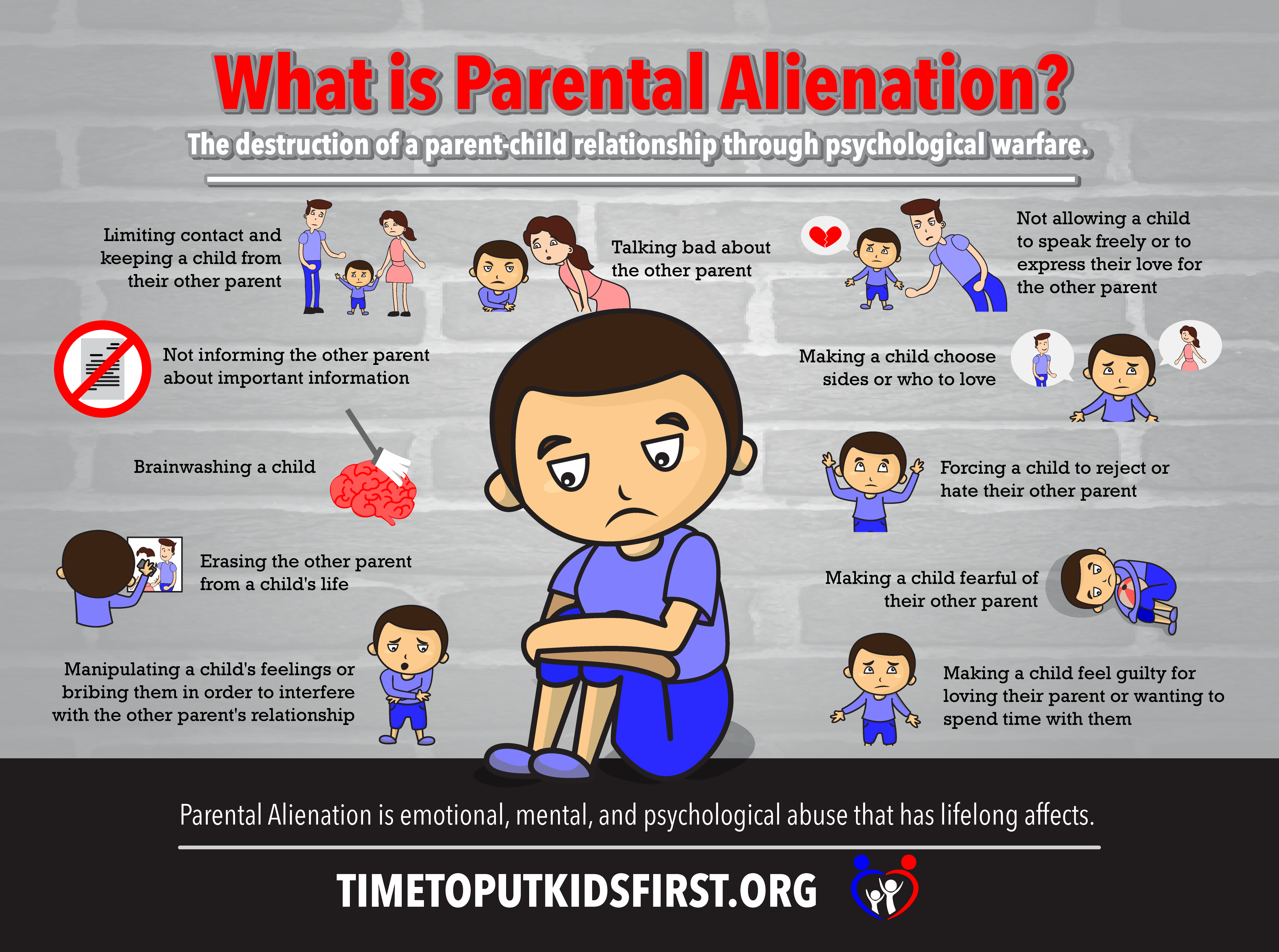4 Ways to Spot Manipulative Parents

Parental manipulation can be a subtle and insidious issue, often leaving children and even adults feeling confused, guilty, or questioning their own judgment. Understanding the signs and recognizing manipulative behaviors is crucial for maintaining healthy relationships and setting appropriate boundaries. This article aims to provide an in-depth analysis of manipulative parental behaviors, offering insights and strategies to identify and address such situations.
Understanding Parental Manipulation

Manipulative behaviors in parents can manifest in various ways, often disguised as caring or concerned actions. These behaviors are typically driven by the parent’s own needs, desires, or insecurities, rather than genuine concern for their child’s well-being. Recognizing these behaviors is the first step towards establishing healthier dynamics.
Emotional Blackmail
One common tactic employed by manipulative parents is emotional blackmail. This involves using guilt, shame, or fear to control their child’s behavior. For instance, a parent might say, “If you don’t do as I say, I’ll be so disappointed in you,” or “If you leave, I’ll be all alone.”
Emotional blackmail often leaves the child feeling responsible for the parent’s happiness or well-being, creating an unhealthy dynamic where the child’s autonomy is compromised.
Gaslighting
Gaslighting is a form of manipulation where the parent makes the child question their own reality or perception. This can involve denying that certain events or conversations took place, or even blaming the child for the parent’s own actions or emotions.
For example, a parent might say, “You’re imagining things; I never said that,” or “It’s all in your head. I’ve never treated you badly.”
Gaslighting can cause significant emotional distress and erode the child’s self-confidence and trust in their own judgment.
Using Love and Affection as a Tool
Manipulative parents may also use love and affection as a means of control. They might withdraw love or affection as a form of punishment, or conversely, offer excessive praise or affection to manipulate the child into compliance.
For instance, a parent might say, “If you do well in school, I’ll love you even more,” or “If you don’t clean your room, I won’t give you a hug.”
Excessive Control and Micromanagement
Some manipulative parents exert an excessive level of control over their child’s life, making decisions on their behalf and micromanaging every aspect of their daily routine.
This can involve making choices about the child’s education, career path, or even their social life, without considering the child’s own desires or aspirations.
For example, a parent might insist on choosing the child’s major in college or decide which friends they are allowed to have.
Recognizing the Signs

Identifying manipulative behaviors in parents requires keen observation and self-awareness. Here are some key signs to look out for:
Unreasonable Expectations
Manipulative parents often have unrealistic expectations of their children, expecting them to be perfect or to meet their every need.
For instance, they might expect their child to achieve straight A’s in school without considering the child’s study habits, interests, or other commitments.
Lack of Empathy
A manipulative parent may struggle to empathize with their child’s feelings or experiences. They may dismiss the child’s emotions or make light of their struggles.
For example, if a child expresses feelings of sadness or anxiety, the parent might respond with, “There’s nothing to be sad about” or “Just get over it.”
Constant Criticism
Manipulative parents often criticize their children excessively, focusing on their flaws or perceived failures rather than celebrating their strengths.
This constant criticism can lead to low self-esteem and a sense of worthlessness in the child.
Guilt Trips
As mentioned earlier, manipulative parents may use guilt trips as a way to control their child’s behavior.
For instance, a parent might say, “After all I’ve done for you, this is how you repay me?” or “If you really cared about me, you’d do what I say.”
Strategies for Dealing with Manipulative Parents
Dealing with manipulative parents can be challenging, but there are strategies that can help you maintain your boundaries and well-being.
Set Clear Boundaries
Establishing clear boundaries is crucial when dealing with manipulative parents. This involves defining what is acceptable and unacceptable behavior, and communicating these boundaries assertively but respectfully.
For instance, you might say, “I understand that you have concerns about my decisions, but I am an adult and capable of making my own choices. I expect you to respect my autonomy.”
Practice Self-Care
Self-care is essential when dealing with manipulative individuals. This includes taking time for yourself, engaging in activities that bring you joy, and surrounding yourself with supportive people who validate your experiences.
Self-care can help you maintain your emotional well-being and strengthen your resilience in the face of manipulative behaviors.
Seek Support
It’s important to recognize that you don’t have to navigate this alone. Seeking support from a trusted friend, therapist, or support group can provide valuable perspective and help you process your emotions.
Therapy, in particular, can be beneficial for understanding the dynamics of manipulation and developing effective coping strategies.
Use Assertive Communication
Assertive communication is key to addressing manipulative behaviors. This involves expressing your feelings, needs, and boundaries in a clear and respectful manner.
For example, you might say, “I understand that you want the best for me, but when you make decisions on my behalf, it makes me feel like you don’t trust my judgment. I’d appreciate it if you could respect my choices and support me in my decisions.”
Conclusion
Recognizing and addressing manipulative behaviors in parents is an important step towards fostering healthier relationships and personal growth. While it may be challenging, setting boundaries and seeking support can empower you to navigate these dynamics with resilience and confidence.
How can I tell if my parent’s behavior is truly manipulative, or if I’m just being oversensitive?
+It’s natural to question your perceptions, especially when dealing with sensitive topics like parental manipulation. A good rule of thumb is to trust your instincts. If you feel that your parent’s behavior is controlling, dismissive, or emotionally manipulative, it’s likely that your instincts are correct. Consider seeking support from a trusted friend or therapist to gain an objective perspective and validate your experiences.
What if I still depend on my parent financially or emotionally? How can I set boundaries without jeopardizing my relationship or support system?
+Setting boundaries can be especially challenging when you still rely on your parent for various forms of support. It’s important to approach this process with sensitivity and respect. Start by communicating your needs and boundaries clearly but respectfully. You might say something like, “I understand that you have certain expectations of me, but I need to make my own decisions and choices. I appreciate your support, but I also need you to respect my autonomy.”
Are there any books or resources that can help me understand and deal with manipulative parents?
+Yes, there are several resources available that can provide valuable insights and strategies for dealing with manipulative parents. Some recommended books include Will I Ever Be Good Enough?: Healing the Daughters of Narcissistic Mothers by Karyl McBride, Toxic Parents: Overcoming Their Hurtful Legacy and Reclaiming Your Life by Susan Forward, and Emotionally Immature People: How to Deal with Narcissists, Sociopaths, and Other Toxic People by Gabrielle A. Alpert.



